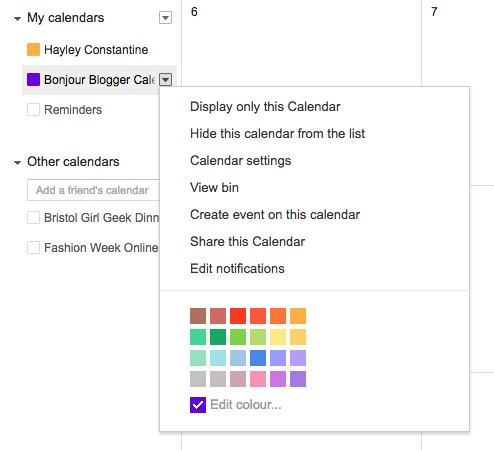
In the last week, if you’ve been online at all in the blog space, you’re bound to have seen tons of posts lamenting new rules about how to disclose. The CMA (Competition and Markets Authority) released a new document called Social Media Endorsements: Being Transparent With Your Followers alongside an article announcing that they have secured a formal commitment from 16 celebrities that they will clearly define what they receive as a gift or payment. This follows on from the announcement last summer that they were launching an investigation into how people are influenced by social media.
Andrea Coscelli, chief executive of the CMA, said:
You should be able to tell as soon as you look at a post if there is some form of payment or reward involved, so you can decide whether something is really worth spending your hard-earned money on.
Any influencer worth that title will agree with this – that’s not the issue. We have been strongly campaigning for better disclosure rules, and whenever we write about them, we seem to end the posts with the same thought – it’s great that the government agencies are paying attention and trying to help, but the guidance that is given is very theoretical – it doesn’t feel like they have consulted with any influencers, and if they have, then they haven’t taking the advice into consideration.
The other thing that we are interested to know is what are the consequences of breaking these guidelines. Will rule breakers be fined? Will repeat offenders be further prosecuted? Will brands be paying attention to who is breaking the rules, and will this lead to them losing work? It will be interesting to see what will happen – but since the ASA does not currently hold the power to press charges, it seems unlikely that anything of actual consequence will happen, which is a shame when you consider that the worst offenders know that they can get away with poor or non disclosure.
We wrote about what we believed was best practice regarding disclosure last year, and we believe that those notes follow the guidelines required from the CMA, however the times when you are expected to disclosed have been further defined. Besides disclosing at the time that you are being paid, given or loaned an item, the CMA now recommends that you are clear about the relationship with the brand – how have you worked with them previously? For example, perhaps you did a campaign with a brand (on a gifting basis where they sent you the product to try) and you loved it so much, that you buy it for yourself now. You will still be expected to disclose this if it is within a reasonable period of time – the CMA article suggests any previous relationships that were active within the last year.
(An interesting thing to consider is more relevant to food bloggers – if you’re invited to a restaurant for a review meal or a press preview, not only are you now expected to disclose while you’re at the venue for that meal (as should be standard), but for any subsequent visits in the next year.)
Other things that some influiencers and bloggers may not have considered disclosing previously includes any gifts (which we have discussed 2 years ago whether #bloggermail should be disclosed) and when the brand provides a discount code for you to provide to your followers (which relates partly to the discussion we had about why it’s not a good idea to be pay to work with a brand)
The CMA gives some examples of what they do not consider enough to comply with their regulations, which is also interesting to read through. Some examples which are often seen but are considered insufficient include using ambiguous language without additional disclosure in a post (for example ‘thank you’; ‘made possible by’; ‘in collaboration with’; or ‘thanks to…’), only disclosing at the start of a series of posts or on a home page (for example, if someone is posting lots of links in Instagram Stories and only says at the start of the collection of Stories that there may be affiliate links, this is not enough – the disclosure should be on each Story that contains an affiliate link)
If you’re a WordPress user, we posted last month about reusable blocks and how they will be useful for disclosure – make things easier for yourself! Here are a few examples of wording you could use in your reusable blocks:
- This post was sponsored by {brand}
- This post contains products/experiences gifted by {brand}
- This post contains products/experiences by {brand} who I have collaborated previously with, but have not done so on this post
Another thing to consider is how to disclose when you list the items in an outfit post, whether that’s on your blog or on Instagram. One way could be to list the items and links as you normally would, but to note after each item if it was gifted or if you were given a discount, etc. For example, Blouse, Topshop, gifted * Skirt, Debenhams, PR Discount * Shoes, ASOS
If you do nothing else from this post – please make sure that you check out the gov.uk documentation and ask questions if you are unsure of anything!





